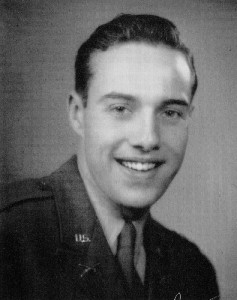Senator Robert Dole
 Robert Joseph Dole grew up in Russell, Kansas, the son of Doran and Tina N. Dole. Times were tough in his early life, as Kansas was hit especially hard by the Depression. Dole worked a number of odd jobs as a boy, trying to help the family as best as he could.
Robert Joseph Dole grew up in Russell, Kansas, the son of Doran and Tina N. Dole. Times were tough in his early life, as Kansas was hit especially hard by the Depression. Dole worked a number of odd jobs as a boy, trying to help the family as best as he could.
Dole was a star athlete in high school, and after graduating in 1941 went on to play football and basketball, and was a star member of the track team at the University of Kansas. He joined the Army’s Enlisted Reserve Corps on December 14, 1942, and was called up the following year. Throughout his training, and well into his career, he kept himself in top physical shape, hoping to resume his athletic career as soon as he got out of the Army.
Now an officer at the young age of 20, Dole arrived in Naples, Italy just a few days before Christmas, 1944. All around, he noticed the destruction caused by the war he was about to enter. A few months later, he was assigned to the front in the Apennine Mountains, taking over a platoon in the 10th Mountain Division. He did not know much about his assignment, only that the division has recently been involved in a number of intense battles along the front lines.
The young second lieutenant was met with skepticism by the men of his platoon when he first arrived. Battle-hardened, they resented newly commissioned officers churned out of OCS, who were often dubbed “ninety-day wonders.†Lt. Dole recognized this, and worked diligently to gain their trust and respect, and always leading from the front.
On April 14, 1945, Dole’s platoon was ordered to take part in an assault on a heavily-defended mound dubbed “Hill 913†near the town of Castel d’Aiano. After watching a massive Allied aerial bombardment of the German positions in the lead up to the attack, many of Dole’s men thought that taking the hill would prove easy, that nobody could have survived such a display of firepower. As they approached the enemy lines, however, they would find that the Germans were very much alive.
One man stepped on a land mine – then another. Suddenly, chaos erupted, as artillery, machine gun, an mortar rounds flew in every direction. All around Dole, American men were falling dead and wounded. Knowing that he needed help if he was to save the rest of his men, Dole frantically looked for his radioman. He soon found him, slumped in a heap on the ground, still clutching his radio. Dole scrambled for him and began dragging the radio and his fellow soldier to a nearby shell hole.
Before making it to safety, Dole felt something smash into his back – perhaps a mortar round or machine gun blast – which sent him to the ground. Losing all sensation and the ability to move, he drifted in and out of consciousness, at times dreaming he was back home in Russell, Kansas, before the thunder of war brought him back to reality.
The 21-year-old lieutenant had endeared himself to his men with the respect and deference he showed to those who had seen much more combat than he. Though Dole’s shattered body was exposed to enemy fire, his men dragged him to safety, giving him as much morphine as he could stand and keeping him safe. Nine hours later, he was evacuated from the battlefield to begin a long and arduous recovery.
Bob Dole would be decorated with two Bronze Stars with Valor for his actions on the battlefield, and twice received the Purple Heart. Little can be said here about his post-war career that does it full justice – Congressman, Senator, nominee for President of the United States. A remarkable life, in any circumstances, but made all the more remarkable after his recovery from what should have been a mortal wound in Italy. Paralyzed for weeks, he slowly regained the ability to move, and despite many setbacks over a period of several years, recovered his strength – inner and outer – though he would never regain use of his right arm.
The training, and the adversity, Dole faced during his military service forged him into the man he would become. He has never forgotten it, nor has he forgotten the men and women who served with him and have served since. He is one of our nation’s most identifiable veterans’ advocates, and served as National Chairman of the effort to build the National World War II Memorial. He can still often be found there today, greeting fellow veterans as they visit their memorial for the first time. He has also spent countless hours visiting with other young men and women who have been wounded in action, encouraging them to understand that, while their bodies may have been damaged, their spirit can still thrive.
It is for this, his tremendous service to our nation both on and off the battlefield, that the American Veterans Center is proud to present the 2009 Audie Murphy Award to Senator Robert J. Dole.










